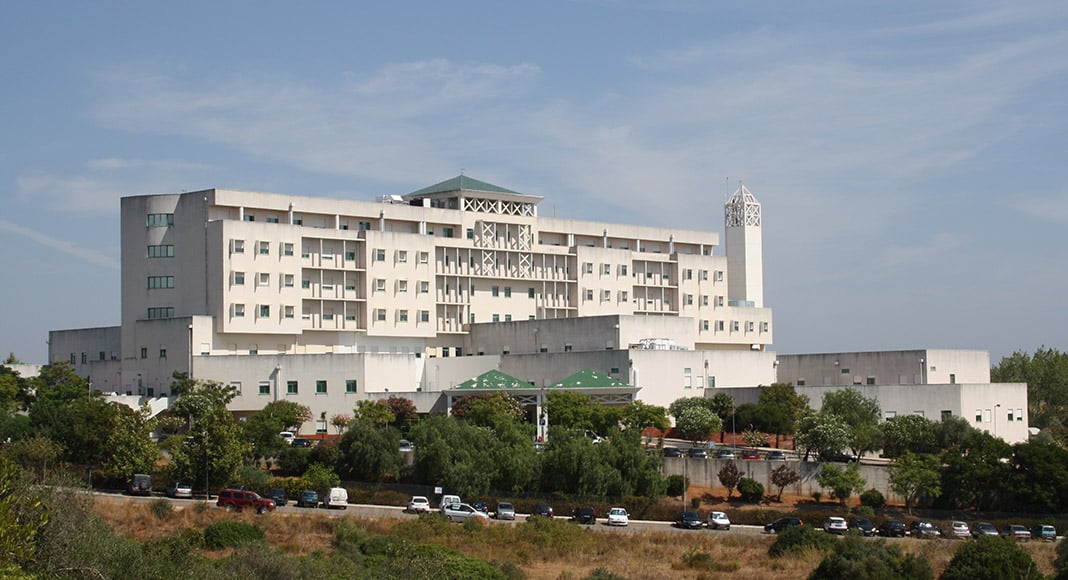Dr. Luís Batalau says the SNS (National Health Service) is being “destroyed”
The former boss of Portimão Hospital has written an opinion piece lambasting the current state of the Algarve’s public hospitals and describing the merging of their administrations into one as a “failure.”
The opinion piece, published today in several regional online newspapers, was penned by Dr. Luís Batalau, who headed the administration board of the former Barlavento Hospital Centre before the administration of the region’s hospitals was combined into one single entity– known today as the Centro Hospital Universitário do Algarve (CHUA, or Algarve University Hospital Centre in English).
For over a decade, Batalau has expressed his “complete disagreement” with the merger of the hospitals’ administrations, the results of which he says are “visible to all of us, expect for those who are blind or who have personally benefitted from the measures.”
“Unfortunately, most of these measures in Portugal are implemented without any prior study, in terms of the care to be provided or the financial aspect. I would be very happy if someone could prove to me that, with the CHA/CHUA (administrations), all types of healthcare have considerably improved and that there has been a saving/reduction in the funds invested,” the septuagenarian says.
Dr. Batalau strongly believes that the merger of the Algarve hospitals has led to a series of negative consequences for the region’s healthcare system, one of the most significant issues being the reduction in the number of healthcare professionals, who have “either moved to the private sector or left the country altogether.”
The situation is further exacerbated by the low nurse-to-patient ratio in various services, he says, which has resulted in many nurses being forced to work excessive overtime without compensation. These extra hours are often placed into a pool of time that is theoretically meant to be used as days off, but with such a low staffing ratio, these breaks are “never taken.”
Career progression for healthcare professionals has also been stalled, while the lack of adequate human resources has even led to the closure of services, particularly at Portimão Hospital’s maternity ward and paediatric and obstetrics A&E departments, the doctor says.
He also warns that if this trend continues, Faro Hospital could be next, leaving only private healthcare facilities available for those who can afford them.
The effects of the merger are also evident in the increased waiting times for emergency services, consultations, and surgical procedures, with only a few medical specialties managing to maintain acceptable levels of service.
Additionally, the costs associated with the healthcare system in the Algarve have risen dramatically, particularly due to the high fees paid to doctors hired on a service provision basis, sometimes reaching as much as €100 euros per hour. This financial strain is further aggravated by the payments made to private healthcare companies for outsourced services, Dr. Batalau stresses.
Another significant issue is the reluctance of healthcare professionals, especially doctors, to move to the Algarve, primarily due to concerns about being assigned to Faro Hospital. This reluctance has led to an alarming trend of doctors resigning from their contracts because of the pressure to work emergency shifts, including nights and weekends, in Faro, the former hospital boss says.
Adding to these problems are the difficulties in restocking essential medical supplies, products, and medicines, particularly at Portimão Hospital.
Last but not least, Dr. Batalau criticises the management of health institutions in the Algarve, which he argues has been handed over to “incompetent individuals who lack healthcare knowledge”, with appointments often being made based on “political connections rather than expertise.”
“I could continue to list more problems/complications that have arisen after the hospital merger and now with the creation of the Algarve Local Health Unit – ULSA – a health institution of great management difficulty, even worse,” he says.
“If one hospital is already difficult to manage, imagine an institution with three Hospitals (Faro, Portimão, and Lagos), five Basic Health Emergency Units, a Physical Medicine and Rehabilitation Centre with inpatient care (São Brás de Alportel), an Inpatient Unit (Loulé), and 15 Health Centres with 152 functional posts,” Dr. Batalau underlines.
“This destruction of the SNS (National Health Service) is regrettable! Faced with the chaos that occurs daily at the national level, but especially in our region, that is, in the Algarve, and faced with the passivity of the Portuguese people and, in this case, the Algarvians (no more than 20 people at the protest on August 30 in front of Portimão Hospital, at which I was present), I have no choice but to fight alone for a better SNS, even though I am privileged, being a doctor, with many connections, with ADSE, with health insurance, which is not the case for most people,” he adds, stressing that his article is a “warning and a call to attention” for the people of the Algarve to “wake up”.




















